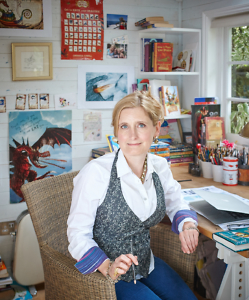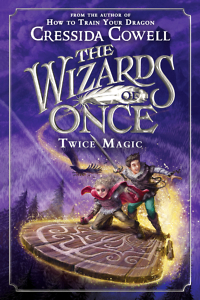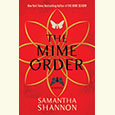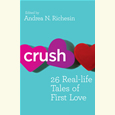Making Magic
Cressida Cowell brings readers the second installment in The Wizards of Once series
The wait will soon be over for readers clamoring for the second book in British author Cressida Cowell’s newest fantasy series. Twice Magic, the follow-up to 2017’s The Wizards of Once, comes to shelves in early October and continues the thrilling story of Wish, a young Warrior, and Xar, a young Wizard. Once destined to hate one another, they join forces again in the new book to embark on an action-packed, evil-spell-conquering adventure.
 Filled with a cast of memorable characters, including the magical creatures who aid both Wish and Xar, this illustrated novel is an engaging read-aloud marked by detailed world-building, spirited dialogue, and a boisterous pace. This is hardly Cowell’s first foray into magical worlds; she is also the author behind the wildly popular How to Train Your Dragon series, which has been adapted to film. Cowell answered questions from Chapter 16 via email about what it’s like to write an altogether new series.
Filled with a cast of memorable characters, including the magical creatures who aid both Wish and Xar, this illustrated novel is an engaging read-aloud marked by detailed world-building, spirited dialogue, and a boisterous pace. This is hardly Cowell’s first foray into magical worlds; she is also the author behind the wildly popular How to Train Your Dragon series, which has been adapted to film. Cowell answered questions from Chapter 16 via email about what it’s like to write an altogether new series.
Chapter 16: “Stories can change lives,” you write in this book. What made you first want to write stories for children?
Cressida Cowell: I wanted children of today to read for pleasure with the same joy and excitement that I had when I read as a kid. Books are a medium under threat, and they are a medium I feel we cannot afford to lose. On a screen, things happen “out there,” whereas in a book they happen inside your head. You are that protagonist, and therefore books are uniquely effective at helping children develop empathy, the quality of “walking around in someone else’s skin,” to quote To Kill a Mockingbird.
This is one of the reasons why I write books for children and why empathy is such a major theme in The Wizards of Once. I studied English at university, but I also have an M.A. in illustration, so I am trying to write heavily illustrated, intelligent books for children that I hope offer stories that they read for pleasure but that also move them—that make them laugh, sometimes cry, be thrilled, and, above all, think.
Chapter 16: What was it like to begin a new series after fifteen years of the How to Train Your Dragon series?
Cowell: It was nerve-wracking to start the new series, not only because How to Train Your Dragon has been so successful, but also because I was so thoroughly in love with that world and its characters. How was I ever going to fall in love twice?
But I love a challenge (especially an impossible one), so I began working on The Wizards of Once over five years ago, doing research, drawings, and plot lines at the same time as finishing the dragon books. I chose a subject that captured my imagination as a child in the same way as dragons did: magic.
I loved books about magic—A Wizard of Earthsea, The Hobbit, The Ogre Downstairs—and I spent a lot of time as a child in Sussex, where my grandmother grew up. And where there were Iron Age hill forts 3,000 years old that were supposed to have been built by giants and ancient yew forests that were supposed to have been haunted by fairies. My story of The Wizards of Once grew naturally out of that landscape. And, of course, like many (if not all) children, I wanted to be magic—to have the power of telekinesis, or teleportation, or invisibility, or flying. And I gave those powers to my child protagonists.
But it was when I created the characters of Wish and Xar that I really fell in love with the new world. Wish is dyslexic, but she is the writer in the story. She is a strong, sweet character who has to learn to stand up to her mother and to own and control her considerable power. Xar’s heart is in the right place; he is ingenious and creative and a natural leader. But his impulsiveness and pride lead him into terrible difficulty, and he has to learn empathy and control. We all know kids like this, who don’t mean to get into trouble, but somehow they just do.
I am now so thoroughly in love with the stories of Wish and Xar and the world they live in—of Wizards and Droods and Bugbears and Will-o-the-wisps and wildwoods—that I never want to end it, just like with How to Train Your Dragon. But here’s what I learnt: endings are always sad, but they are also just the beginning to a new, and perhaps even more glorious, adventure.
 Chapter 16: So many moments in the series, such as the nearly breathless escape from Gormincrag, are vividly imagined. Along with Sussex, what inspired your creative imagination as a child and prompted you to become the writer you are today?
Chapter 16: So many moments in the series, such as the nearly breathless escape from Gormincrag, are vividly imagined. Along with Sussex, what inspired your creative imagination as a child and prompted you to become the writer you are today?
Cowell: I spent a lot of time as a child playing, unsupervised, in the countryside or the wilderness. How to Train Your Dragon was inspired by a real place, an uninhabited island off the west coast of Scotland, and The Wizards of Once by Sussex. It was absolutely normal for children in the 1970s to have that unsupervised access to countryside, something that just doesn’t seem to happen in the same way nowadays.
A major theme in both the Dragon and Wizards series is that of wilderness and our relationship with nature and the environment. How can children learn to respect nature and look after the environment if they don’t spend their childhoods playing in it? My own creative imagination was fed by the glorious landscapes I was lucky enough to grow up in, but also by the stories I was told and the books I read. My parents read aloud to me, and I always try and encourage parents to try and read with their kids—just ten minutes a day, way beyond the age when the children can read for themselves.
Chapter 16: How do you choose which moments in the series will have your lively spot illustrations?
Cowell: This book is heavily illustrated in a mixture of illustrative styles. The illustrations tell the story in different ways. So, sometimes I will draw in a scratchy, loose way with the emphasis on the energy of the line and on mark-marking, and that is to help move the reader energetically through the story and joyfully break up the rigidity of the text. Other illustrations are much more detailed and realistic so that children can immerse themselves in the adventure; they might think, That Snowcat looks so realistic that it might be true! If I am intending the reader to feel tenderness towards a character, I will take a very soft 5B pencil and I will draw that character with a gentle, tender line. So, the illustrations are not always lively; they are emotional, and I try and orchestrate that emotion like a piece of music.
Chapter 16: Queen Sychorax says to Wish: “You’ll understand when you’re older.” This statement drives Wish crazy. “Why did [adults] keep saying that?” she wonders. I love how, later, Wish says the same thing to her. Did you hear these words often as a child?
Cowell: Yes, I did! And I think many children have that experience. In fact, I think we have as much to learn from children as they have to learn from us. We can learn from their creativity. Children are the most creative people on earth because they don’t know the rules yet. We can learn from their hopefulness, their endless questioning, their curious natures, and their love of play. We have so much to learn from children; they have such a clear sense of what is important in life, and sometimes we lose our way when we get older.
Chapter 16: You write about The Drood Commander in chapter one that “whatever we are tends to concentrate as we get older, and it had distilled him into a pungent, poisonous drink indeed.” Do you think there’s hope and redemption for characters like Sychorax and Encanzo, whose frustrations and bitterness have concentrated in them?
Cowell: Ah, I cannot tell you the answer to that question, because that is the story of Book 3. We have begun to see how Encanzo and Sychorax have become what they are in Twice Magic, but the third book of the series will tell the story of whether redemption is possible. Encanzo and Sychorax are complicated characters because sometimes the world can be a complicated place, and children need stories that help them with that.
Chapter 16: Will you be so lucky again as to have David Tennant narrate the audio version of the second book in the series?
Cowell: Yes! I am so lucky to have David Tennant as a narrator. He is a one-man, wildwood-archipelago, acting genius.
Chapter 16: Toward the book’s close, Caliburn tells Wish that young people “don’t know any better” than to believe that love will conquer everything. And Wish says in response: “Well, I never want to grow up, then. I want to stay young forever.” Can you give us any hints as to what’s next for her in the series? Will she have to face grown-up challenges anyway?
Cowell: Yes, Wish will have to face grown-up challenges. I made my protagonists the interesting age of thirteen—with one foot in childhood and the other foot in adulthood. She will have to make difficult choices. And the flip side of love—jealousy—will appear in the next book. But I don’t want to give too much away.

Julie Danielson, a former school librarian, blogs at Seven Impossible Things Before Breakfast and writes about picture books for Kirkus Reviews, BookPage, and the Horn Book. Her first book, Wild Things! Acts of Mischief in Children’s Literature, was published in 2014.





